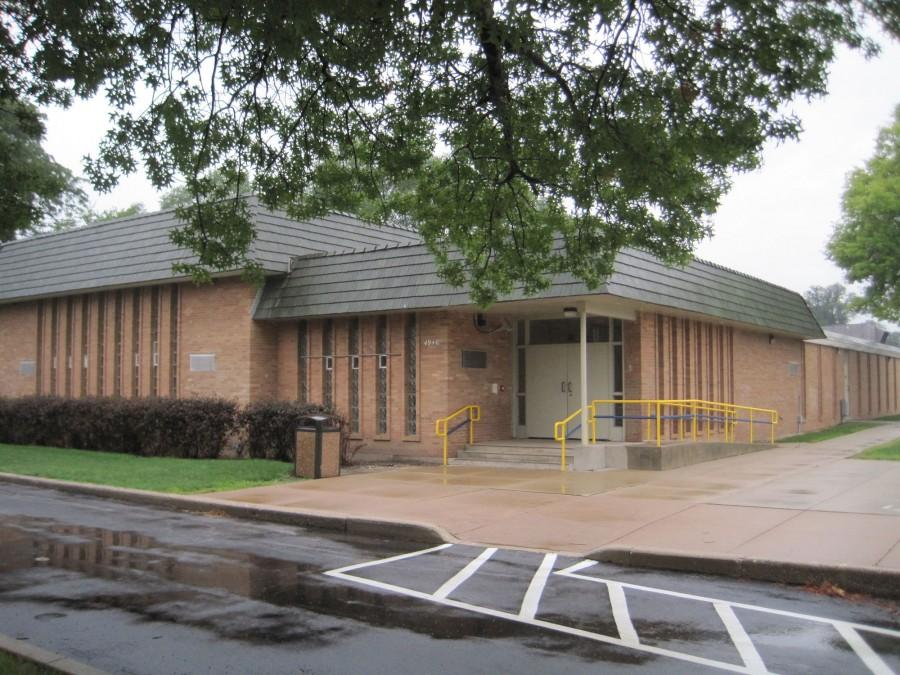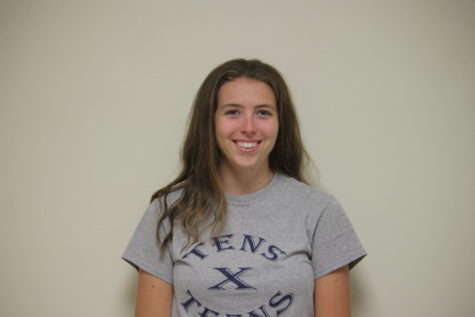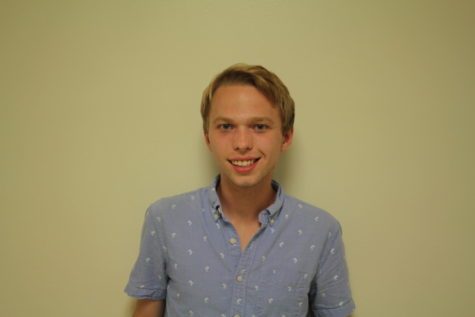LT Students, Staff react to SC lockdown
While installing new BluePoint devices at the LT Corral, an announcement was erronously activated putting both LT campuses on lockdown. (westernspringshistory.org)
October 6, 2018
Via Sznewajs had her earbuds in on her way to second period last Thursday when she noticed other students running into classrooms.
Upon removing her earbud, she heard the alarm sounding throughout the halls of upper C—it was a hard lockdown coming from the school’s new BluePoint system. She ran into the nearest classroom and spent the next 55 minutes on the floor in silence, waiting for any information.
“You could tell everyone was really scared because nobody had any idea that this was a malfunction,” Sznewajs said. “At first I thought that someone might have pulled it, but then I heard sirens and I thought that it was a real threat. I was scared because this siren was going off, telling us to get on hard lockdown, saying that there was an intruder in the building.”
The false alarm was reportedly triggered while the BluePoint system was being installed at the Corral at SC last Thursday, Sept. 27. While employees were connecting the system in the Corral, only the alarm and the intercom message were triggered, which means that the system didn’t completely go off and contact police and send out an alert message. However, it was still enough to send SC into a hard lockdown.
Furthermore, it happened the day after the first lockdown drill of the year at both campuses.
“I would say, first of all, our sincerest apologies for what happened,” Principal Brian Waterman said. “We are appreciative of all agencies who responded immediately and implemented safety protocols efficiently as a precautionary measure. At no point was there a threat to the safety of students or staff.”
But in the moment, many LT students said they believed that the situation was a real, active shooter.
“I think it is scary how believable it has become,” Mary Beck, co-founder of the Save Promise club, said. “When the police were called, all of our minds—from the people I’ve talked to—immediately went to, ‘Oh, my god, there’s a school shooter.’”
Even though the staff were surprised at the activation of the BluePoint system, they worked quickly to make sure students were out of the halls and safely in a classroom, Dave Stormont, a freshman biology teacher, said.
“My first thought was just to look towards the safety of my students,” Stormont said. “It was making sure that my students that were in the classroom stayed within the room, and then to go and help anybody out in the hallway, and to get everybody into a location that was okay.”
Throughout the day, Stormont observed students’ reactions, which varied greatly, he said.
“It ranged. I think there was a range of students within the classroom and how nervous they were,” Stormant said. “I would say the furthest extremes were a student that decided this was a time when he could nap to one of the girls that as soon as the all-clear came out over the PA system, her relief came out in tears. I think everybody else fell in that spectrum.”
Even if a threat or a lock-down does not lead to any physical harm to anyone on campus, incidents like that do take a mental toll on the student body—especially when it leads to armed officers having to roam the halls, Waterman said.
“I think the response is different because these situations—even when there’s not an active threat—are real,” Waterman said. “When you’re in a classroom… with one teacher and 20 kids, and the police burst into your room with guns drawn, actively searching everyone, it doesn’t matter if there is a threat on campus or not. That’s a real scenario that most people never experience in their lifetime.”
And with the lockdown also being avoidable, it is more difficult for Waterman and the rest of the administration to grapple with.
“To us as a leadership team it is a little harder to swallow because we know the emotional trauma it put our students through and the thought process that students and staff went through specifically at SC, but also at NC because of siblings and peers,” Waterman said. “It really had tentacles all over the district.”
SC Associate Principal Shanna Lewis said that with this being an issue that wasn’t around back when many adults were in school, understanding how to best assist students in this environment is not easy.
“It is one of those things where, we as adults didn’t have to figure out how to manage this when I was in school,” Lewis said “I don’t know what that is like as a kid. But I know what it is like from an adult trying to keep kids safe, and it’s the number one topic.”
But the safety of students transcends just physical safety, according to Waterman.
“We look at our social-emotional learning and how we can incorporate that to support kids, but I don’t know if we really know how to figure out all of the ‘hows,’” Waterman said. “But I do know it is the number one focus of pretty much every adult in this building: how do we keep our students safe, not just physically but mentally too.”
The administration is pushing to address the mental impact of the heightened awareness of gun violence through helping to foster connections between adults and students and to build relationships that students can turn to if they need to get something off their shoulders, Lewis said.
“I know, as an administrative team, that’s our number one focus: ‘How are we going to build relationships with kids?’” Lewis said. “What kind of resources can we give teachers so they can build relationships with kids?”
But those relationships can also help to prevent an act of school violence by making the administration more likely to be aware of potential threats—and having the ability to address them before anything bad happens.
“A lot of information we get about concerns is coming from kids,” Lewis said. “You are our number one resource to keeping you safe. We rely on you guys a lot.”
But both Lewis and Waterman reinforced that the issue of school security is of huge importance to the administration.
“It’s something that weighs heavily on all of us,” Lewis said.



















![Movie poster for '[Rec]" (2007).](https://www.lionnewspaper.com/wp-content/uploads/2023/04/rec-640x900.jpg)




